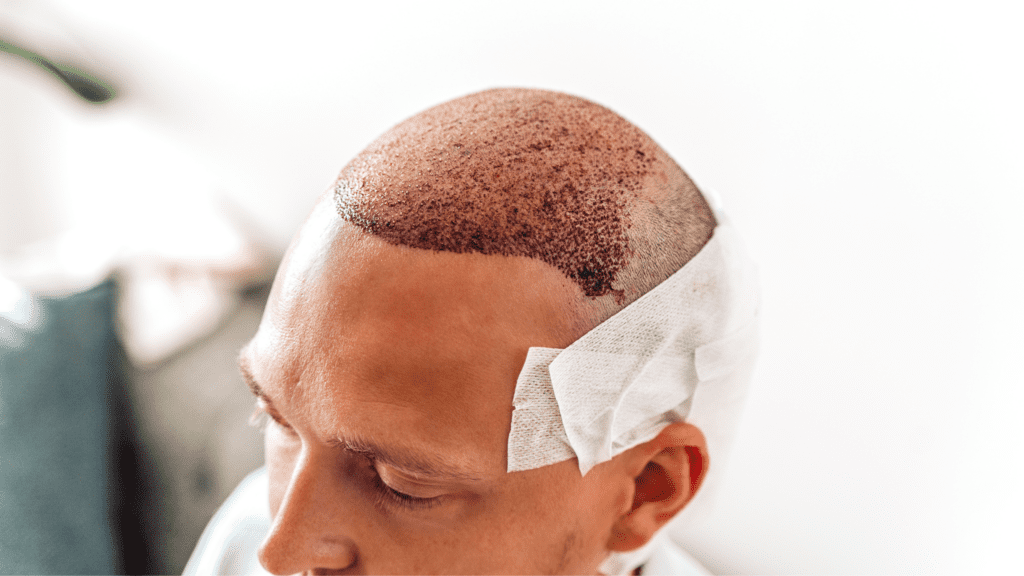
Are you considering a hair transplant to combat hair loss? You’re not alone. This popular procedure has become a go-to solution for many seeking to restore their hair to its former glory. However, not all hair transplants lead to the successful, lush hair growth you might expect. Why do some hair transplants fail, and more importantly, how can you ensure yours isn’t one of them? In this detailed guide, we’ll explore the top three reasons behind unsuccessful hair transplants and provide you with the knowledge to avoid these common pitfalls. With the right preparation and understanding, you can significantly increase the odds of enjoying a successful hair restoration journey.
Inadequate Qualifications of the Surgeon
Choosing the Right Surgeon: A Crucial Step
The success of your hair transplant hinges significantly on the skill and expertise of your surgeon. But how can you be sure you’re choosing the right professional for the job? Let’s delve into the qualifications that matter.
1. Board Certifications: A Must-Have
Look for a surgeon who is board certified in dermatology or plastic surgery. These certifications ensure that the surgeon has undergone the rigorous training and examinations required to perform hair transplants safely and effectively.
2. Experience and Specialization: The Cornerstones of Success
An experienced surgeon with a specialization in hair restoration is more likely to achieve natural-looking results. Ask about the number of hair transplant procedures the surgeon has performed and request to see before-and-after photos of previous patients.
3. Consequences of an Underqualified Surgeon
Choosing a surgeon who lacks the necessary qualifications can lead to disappointing results. Poor hairline design, unsatisfactory density, and complications are just a few of the potential outcomes.
Poor Post-Procedure Care
The Importance of Post-Procedure Care
After your hair transplant, the way you care for your scalp can make a significant difference in the outcome. But what exactly should you do (and not do) to ensure the best possible results?
Post-Procedure Do’s and Don’ts
-
Do follow your surgeon’s aftercare instructions meticulously.
-
Don’t use harsh shampoos or hair products until advised it’s safe.
-
Do protect your scalp from the sun and avoid exposing the treated area to harsh elements.
Effective Tips for Post-Procedure Care
Gentle washing, avoiding certain activities, and attending follow-up appointments are critical. Ensuring you understand and follow these guidelines can help secure the success of your hair transplant.

Unsuitable Candidate for Hair Transplant
Are You a Good Candidate?
Not everyone is a suitable candidate for a hair transplant. Certain factors can significantly impact the procedure’s success. Let’s explore what makes someone a good candidate and what doesn’t.
Factors Affecting Candidacy
1. Insufficient Donor Hair
If you don’t have enough healthy hair on your scalp to transplant, the procedure may not be viable.
2. Health Conditions
Underlying health issues can affect hair growth and should be discussed with your surgeon.
3. Expectations
Having realistic expectations about what a hair transplant can achieve is crucial.
Consulting with a Professional
A thorough evaluation by a qualified hair transplant surgeon is essential to determine if you’re a good candidate. This consultation is an opportunity to discuss your goals, the potential for success, and any concerns you might have.
Conclusion
Embarking on a hair transplant journey is a significant decision. By understanding the reasons behind unsuccessful hair transplants and taking steps to avoid these common pitfalls, you’re positioning yourself for the best possible outcome. Remember, the success of your hair transplant starts with choosing the right surgeon, taking proper care of your scalp post-procedure, and ensuring you’re a suitable candidate. With careful planning and informed decisions, you can move forward confidently, knowing you’ve done everything in your power to achieve a successful hair restoration.

